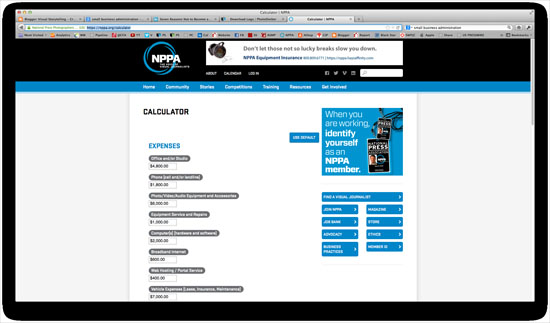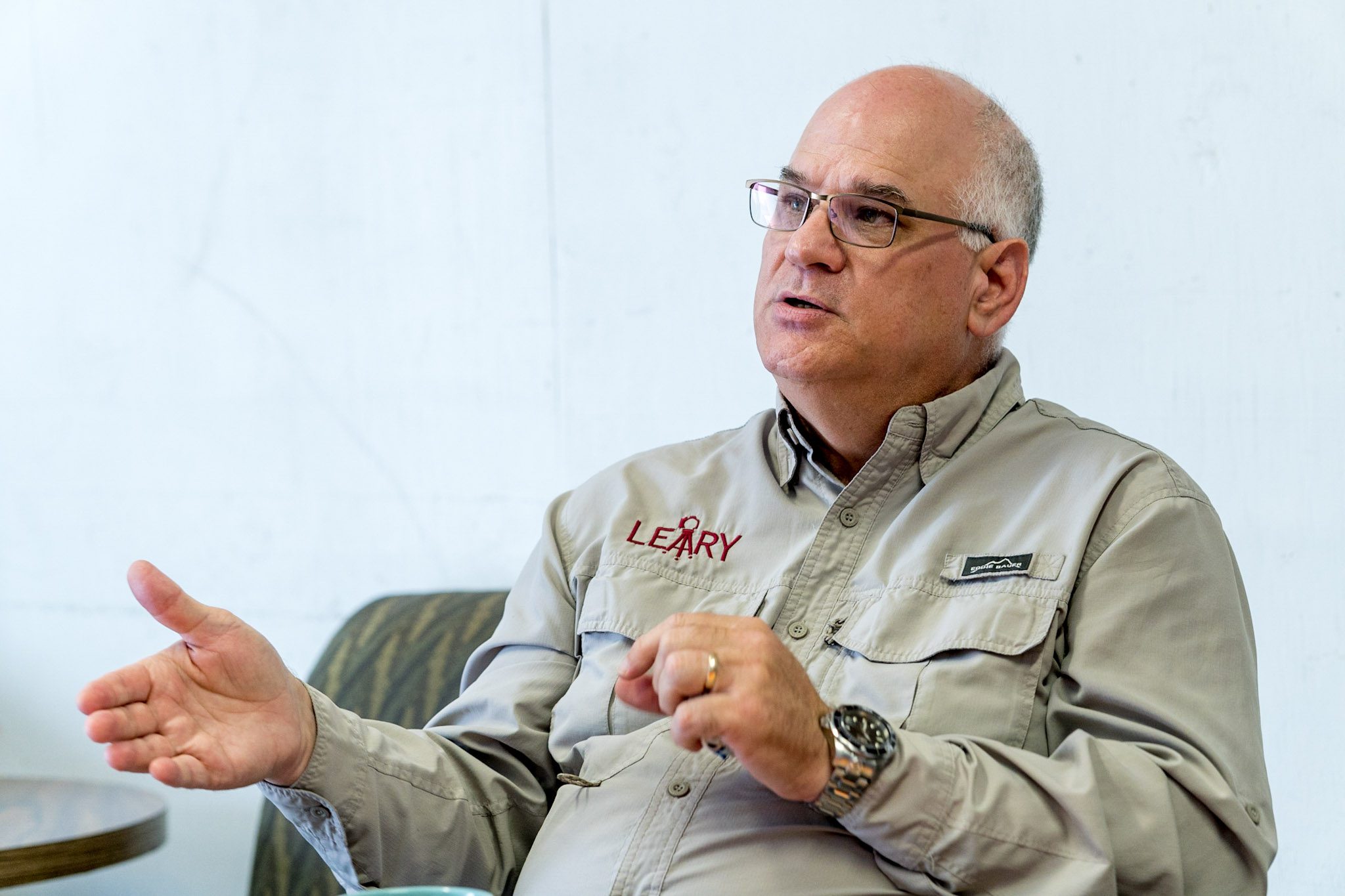 |
| Microsoft Excel Home Budget Template |
Create a home budget – You need to have a budget on what you need to survive. This includes housing, food, healthcare, car payments and entertainment to name just a few. My recommendation is if you have Microsoft Excel is to use their home budget to help you get a solid number of what you need to live. Break this down from yearly to monthly amounts.
 |
| NPPA Cost of doing business calculator |
Create a business budget – You need to know all the expenses beyond your home budget that you need to run your business that also can be written off your taxes as legitimate business expenses. I recommend using the National Press Photographer Association’s “Cost of doing business calculator.” Some things that you could be moved from your home budget to this list would be your phone. You will need to know what you need to run your business monthly and yearly. Things like a website, advertising, Internet connection and other items are things you must have even if you are not shooting a job.
6 months of savings that is equal to both your home and business budgets combined – This is a bare minimum you will need. The odds are pretty high that you will not have a regular stream of income for anywhere between 6 to 18 months.
Don’t quit your full-time job until it gets in the way of your freelance business – I would even recommend seeing if you can go from full-time to part-time with your employer so you are transitioning over a longer period of time. You can offer to go on contract with them and give them 2 – 3 days a week and then you have 3 – 4 days to build your business.
Buy all necessary equipment before you go full-time – You really need to have your basic camera gear, computers, software and any office equipment that you need to do your business paid for before you start freelancing. While you may have budgeted a figure each month for the business for all this equipment you will be putting some of this money away for when things break or need replacing.
Debt free – Ideally having no debts except for a house payment would be perfect. I do want to spell out why this is very important. If you purchase things on credit you could be paying 10% to 20% more for everything you purchase. When the difference between paying bills and going bankrupt is often just a very thin line your business failure is much higher by carrying unnecessary debt.
Synchronize your photography ambitions with your lifestyle desires – If you want to be a war photographer and have a family these are two incompatible desires. You might be able to delay your family dream for a while, but most likely will have to change what you photograph later. Another example is photographing for nonprofit or faith based group and be family oriented. Often these groups pay so little and many expect the photographers to raise their own support. Examine your ambitions. Maybe the reason you want to do certain kind of photography is really your desire to help people. When you get to this core value there maybe other ways to shoot for say green companies that have more money to pay a livable wage.
 |
| Alex Garcia, photographer for the Chicago Tribune, talks with a student about her work during the student practicum at the Southwestern Photojournalism Seminar in Fort Worth, TX last February. |
Find a business coach/mentor – they do not need to be a photographer; just a successful businessperson will do just fine. They can help listen to your issues about running your business and ask questions that help guide you to being successful.
Create a business plan – If you need a loan to start you will need a business plan for the bank. If you are set, still do a plan for yourself. It will help guide you and make decisions that you need to make every day. This will be your compass. You can contact the US Small Business Administration in your area and they can help you. Often this is free.
Can you think of suggestions to add to the list?


